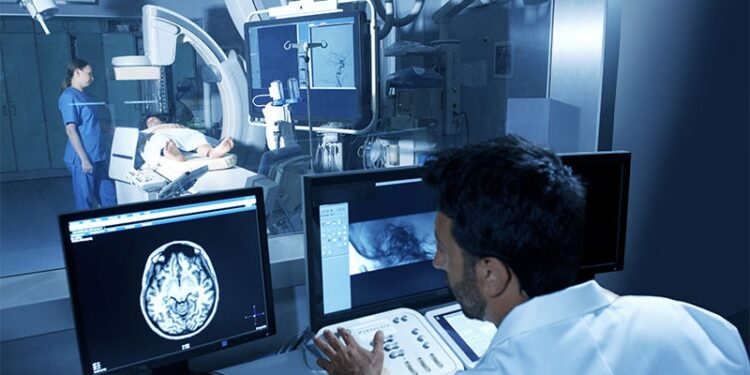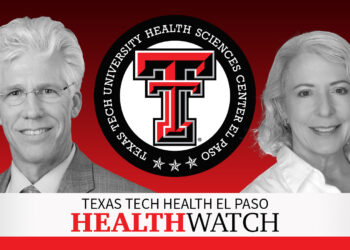A “simple adjustment” to routine CT angiography (CTA) in patients with ischemic stroke or transient ischemic attack (TIA) in emergency departments could dramatically enhance diagnosis. By extending the area scanned by at least 6 cm below the lower end of the trachea to include the upper heart and aortic arch, the detection of cardiac clots increases sixfold. This adjustment could improve the identification of stroke causes and optimize treatment, according to the results of the Canadian randomized DAYLIGHT study, which involved 465 participants and was published in The Lancet Neurology. The data were presented at the World Stroke Congress 2024 in Abu Dhabi, UAE.
“We would only need to screen 14 patients [with the extended CTA] to find one thrombus,” tweeted Luciano Sposato, MD, the study’s lead researcher, vascular neurologist at London Health Sciences Centre (LHSC), director of the Southwestern Ontario Stroke Network team based out of the Regional Stroke Centre at LHSC, and professor of neurology at Schulich School of Medicine & Dentistry, Western University, London, Ontario, Canada.
“Great study, this will certainly modify current stroke care approach,” Avirag Goswami, MD, a vascular neurologist at Northern Light Eastern Maine Medical Center in Bangor, Maine, commented on X.
In an accompanying editorial, Carlos Garcia-Esperon, MD, PhD, and Mark W. Parsons, MD, PhD, stroke specialists from John Hunter Hospital and the University of Newcastle in Newcastle, Australia, noted that although the research does not clarify the underlying pathology behind clot formation, DAYLIGHT is the first randomized clinical trial to demonstrate the benefit of obtaining images below the aortic arch during CTA evaluation for hyperacute stroke.
The study marks a shift away from the days when standard CTA was the only complementary tool to contrast-free CT for evaluating acute stroke in its early stages. However, there is ongoing debate about whether the extended CTA alone is sufficient or if another imaging modality, such as cardiac CT, should be incorporated.
‘Accelerating’ Anticoagulation Therapy
For the study, the research team included 465 patients with ischemic stroke or TIA (51% women; median age, 78 years). Of these, 226 received the extended CTA, while 239 received standard CTA. The primary outcome — detection of cardio-aortic thrombus — was observed in 20 patients (8.8%) in the extended CTA group vs just four patients (1.7%) in the standard CTA group (odds ratio, 5.70; P = .002). This suggests that the extended imaging procedure increased the detection of cardiac clots by approximately 500% compared with conventional practice. In 95% of these cases, the clots were found in the left atrial appendage, according to Sposato.
The extended CTA did not significantly delay the procedure or interfere with access to reperfusion therapies. The time from stroke code activation to completed CTA increased by only 1 minute in the extended CTA vs standard CTA group (21.0 minutes; interquartile range [IQR], 15.8-27.0 vs 20.0 minutes; IQR, 17.0-26.0). Radiation exposure was slightly higher but clinically insignificant, and no increase in contrast-induced nephropathy was observed.
Sposato emphasized that detecting previously overlooked cardiac clots helps physicians better identify the probable origin of the ischemic episode, improving patient management.
“This extended CTA is performed immediately before initiating acute stroke treatment, before the patient receives thrombolytics and, later, anticoagulants — two drugs typically used to dissolve clots. If we wait a week for an echocardiogram, the clot could be gone, and the cause of the stroke would remain unknown,” said Sposato.
Rodrigo Bagur, MD, PhD, interventional cardiologist at LHSC and co-author of the study, commented, “If we did not extend the CT scan, some of these blood clots may not have been found, and these strokes would have been classified as having an undetermined cause.”
The second advantage of extended CTA is that identifying cardiac clots serves as an “accelerator” for initiating anticoagulation therapy. “Previously, anticoagulation was delayed due to concerns about potential bleeding from the stroke. However, we now have strong evidence from randomized studies worldwide showing that early anticoagulation does not increase this risk. In fact, early anticoagulation may reduce the risk of early stroke recurrence due to the same cause that triggered the first episode,” explained Sposato.
The recently published CATALYST meta-analysis integrated data from four clinical trials involving patients with ischemic stroke and atrial fibrillation. The study found that starting anticoagulation with direct oral anticoagulants within 4 days (vs ≥ 5 days) reduced the risk for ischemic stroke recurrence by 44%, without increasing the risk for symptomatic intracranial hemorrhage.
Future Research
Sposato noted that Latin America has significant potential for applying the extended CTA technique to detect more clots. A recent survey of 405 vascular neurologists from 62 countries found that 73% of South American centers and 76% of North American centers (including Mexico) use coronary CTA for ischemic stroke cases.
The next phase of research will focus on securing funding for a new study to assess whether extended CTA reduces the risk for ischemic stroke recurrence and provides additional clinical benefits. Sposato explained that the DAYLIGHT study could not measure these outcomes due to the impracticality of conducting a much larger study.
“Most interventions used in acute stroke care to determine the cause have not shown a reduction in recurrence rates due to the lack of large-scale studies to support it. For example, while echocardiograms and cardiac monitors are used to detect atrial fibrillation, there’s no evidence that this reduces recurrence. The same is true for vascular imaging,” said Sposato.
Sposato reported receiving lecture and consultancy fees from Boehringer Ingelheim, Pfizer, Bayer, AstraZeneca, and Medtronic.
This story was translated from Medscape’s Spanish edition.
Source link : https://www.medscape.com/viewarticle/simple-ct-tweak-detects-stroke-clots-6x-faster-study-shows-2025a1000kn9?src=rss
Author :
Publish date : 2025-08-04 10:11:00
Copyright for syndicated content belongs to the linked Source.














